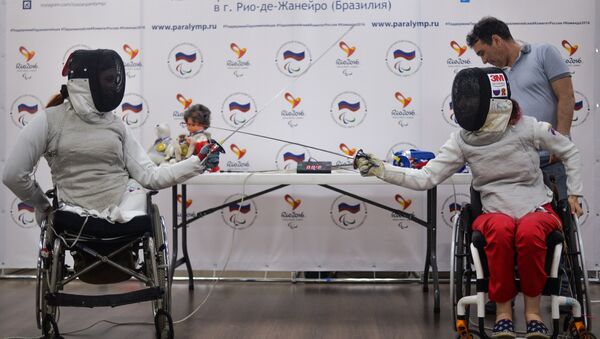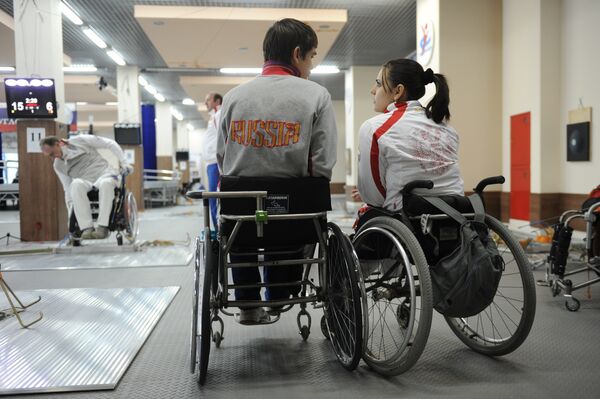“In the course of 12 years of fencing, there has not been a single case of doping admission. We never used anything illegal. Thereby, we do not see Russian fencing team’s suspension from the Paralympic Games as our fault,” said Belkina.
The Russian fencing team has an absolutely positive attitude towards the current situation.
As Belkina explained, it is a loss for the International Wheelchair Fencing Committee (IWFC) as without Russian players, fights will not be as interesting and intense.
“For 10 years now, Russia has always contributed to the development of the fencing sport. I would assume that the IWFC will allow Russian fencers to participate in the Paralympics. After all, we have a strong fencing family,” said the Russian coach.
Twelve years ago, Elena Belkina began wheelchair fencing as a way to rehabilitate people with disabilities.
“No one will able to stop me from fencing as I do it with pleasure. I called up other Russian trainers from different regions, and they all said that as we fenced before, we will fence in the future,” Belkina told Sputnik.
When a kid or a young adult wins a fight, they are happy. They become more coordinated and self-confident.
“I cannot stop my team’s rehabilitation process. They need movement and attain self-confidence as we all need air,” maintained the coach.
Belkina’s team members live an ordinary life. They attend universities, are taught to drive, create families and give birth to children despite all their circumstances.
“That is why suspension from the Paralympic Games is not the end of the world. It is world drama, but not a tragedy for fencers,” explained Belkina. “I always say to my team ‘love your work, and the medal will later come.”
Additionally, Philip Craven has always supported fencing in Russia, especially when the sport became available to children and teenagers.




